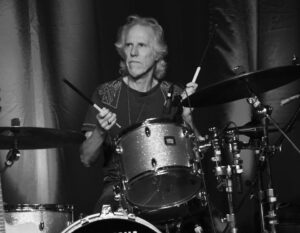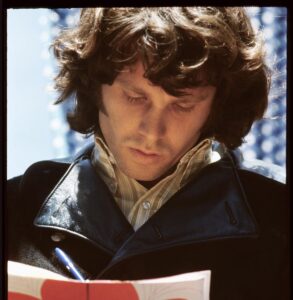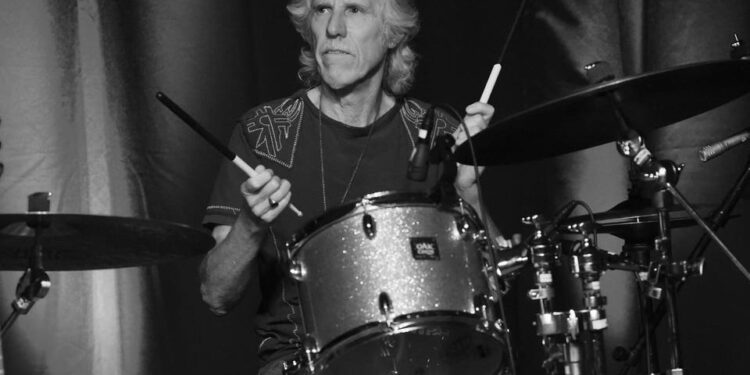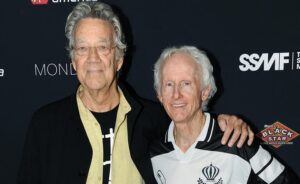
For decades, John Densmore, the legendary drummer of The Doors, has been the quiet keeper of a stormy, myth-heavy legacy. While guitarist Robby Krieger still tours and preserves the musical flame onstage, Densmore has taken a different path — he writes, he reflects, and he protects the soul of a band unlike any other in rock history.
Now, in a series of new interviews promoting his latest writing projects, Densmore has opened up with unusually direct honesty about Jim Morrison, Ray Manzarek, and the band’s inner world — from creative triumphs to personal conflicts, from love to profound loss.

And as always, when Densmore speaks, fans listen.
No matter how many decades pass, Morrison remains the gravitational center of The Doors’ mythology. For Densmore, however, the legend and the man were never the same thing.
“Jim was real,” Densmore began.
“He wasn’t the leather-clad god people imagine. He was a poet who didn’t know how to carry the weight of being Jim Morrison.”
The drummer recalled moments of musical telepathy onstage — “the kind that only happens once in a lifetime” — but also moments of chaos, especially during Morrison’s darker spirals.
“Loving Jim was like loving a wildfire,” Densmore said.
“Brilliant, mesmerizing, dangerous — and impossible to control.”
Still, he insists that Morrison’s artistic courage shaped the identity of the band more than anything else.
“He pushed us into the unknown. He made us uncomfortable — and that’s where we found our sound.”
If Morrison was the lightning, Ray Manzarek was the grounding rod — steady, unshakable, and fiercely dedicated to keeping The Doors a functioning band.
But Densmore did not avoid the long-standing tensions that later emerged between him and the keyboardist.
“Ray and I loved each other like brothers,” he said.
“But brothers fight. We had very different ideas about what The Doors should be after Jim died.”
Densmore famously opposed using Morrison’s voice or image in commercials, while Manzarek and Krieger were more open to the idea. The divide even led to lawsuits, though in later years Densmore and Manzarek reconciled.
“Ray was brilliant. His left hand was our bass player. His right hand was our orchestra. Without him, The Doors don’t exist,” Densmore admitted.
In a softer moment, he added:
“I miss him. Despite everything — I miss him.”
Unlike Krieger, who still performs Doors classics live, Densmore channels his creative energy into writing. His books — including Riders on the Storm and The Doors: Unhinged — have become essential reading for fans seeking the truth behind the mythology.
“I’m not interested in preserving the myth,” he said.
“I’m interested in preserving the humanity. The real story. The real guys.”
He believes writing allows him to articulate the emotional complexities of the band — the highs, the heartbreaks, the responsibility of carrying a legacy tied to a lightning rod like Morrison.
Densmore had nothing but respect for Krieger’s decision to continue performing The Doors’ music.
“Robby is a peaceful soul. He loves to play. He’s keeping the songs alive, and I’m grateful for that,” he said.
“My instrument is the written word now. His is the guitar. That’s how it should be.”
While he has no intention of returning to the stage, Densmore says he still plays drums privately — “just enough to keep the spirit awake.”
When asked what he hopes fans understand about the band today, Densmore paused for a long moment before answering.
“I hope they know we were four young guys trying to make sense of the world,” he said.
“Jim wasn’t a god. Ray wasn’t a saint. We weren’t indestructible. We were human — and that’s what made the music so powerful.”
In his closing remarks, Densmore reflected on the strange privilege of having lived long enough to tell the story himself.
“I’m the drummer,” he laughed softly. “I never expected to be the last one writing the epilogue.”
But perhaps that’s exactly why his voice matters most.
In an age of myths, John Densmore gives us something far rarer — the truth.









